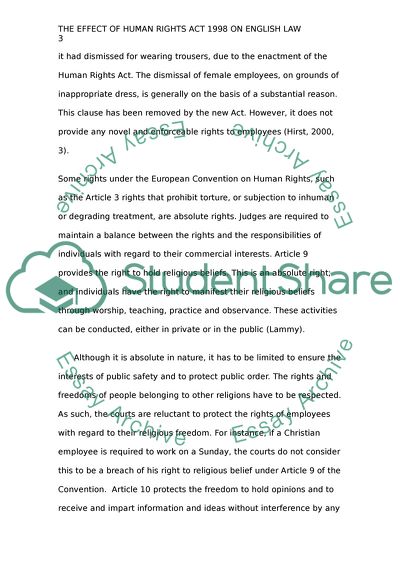Cite this document
(“The Effect of English Law Human Rights Act 1998 Essay”, n.d.)
The Effect of English Law Human Rights Act 1998 Essay. Retrieved from https://studentshare.org/miscellaneous/1561342-the-effect-of-english-law-human-rights-act-1998
The Effect of English Law Human Rights Act 1998 Essay. Retrieved from https://studentshare.org/miscellaneous/1561342-the-effect-of-english-law-human-rights-act-1998
(The Effect of English Law Human Rights Act 1998 Essay)
The Effect of English Law Human Rights Act 1998 Essay. https://studentshare.org/miscellaneous/1561342-the-effect-of-english-law-human-rights-act-1998.
The Effect of English Law Human Rights Act 1998 Essay. https://studentshare.org/miscellaneous/1561342-the-effect-of-english-law-human-rights-act-1998.
“The Effect of English Law Human Rights Act 1998 Essay”, n.d. https://studentshare.org/miscellaneous/1561342-the-effect-of-english-law-human-rights-act-1998.


